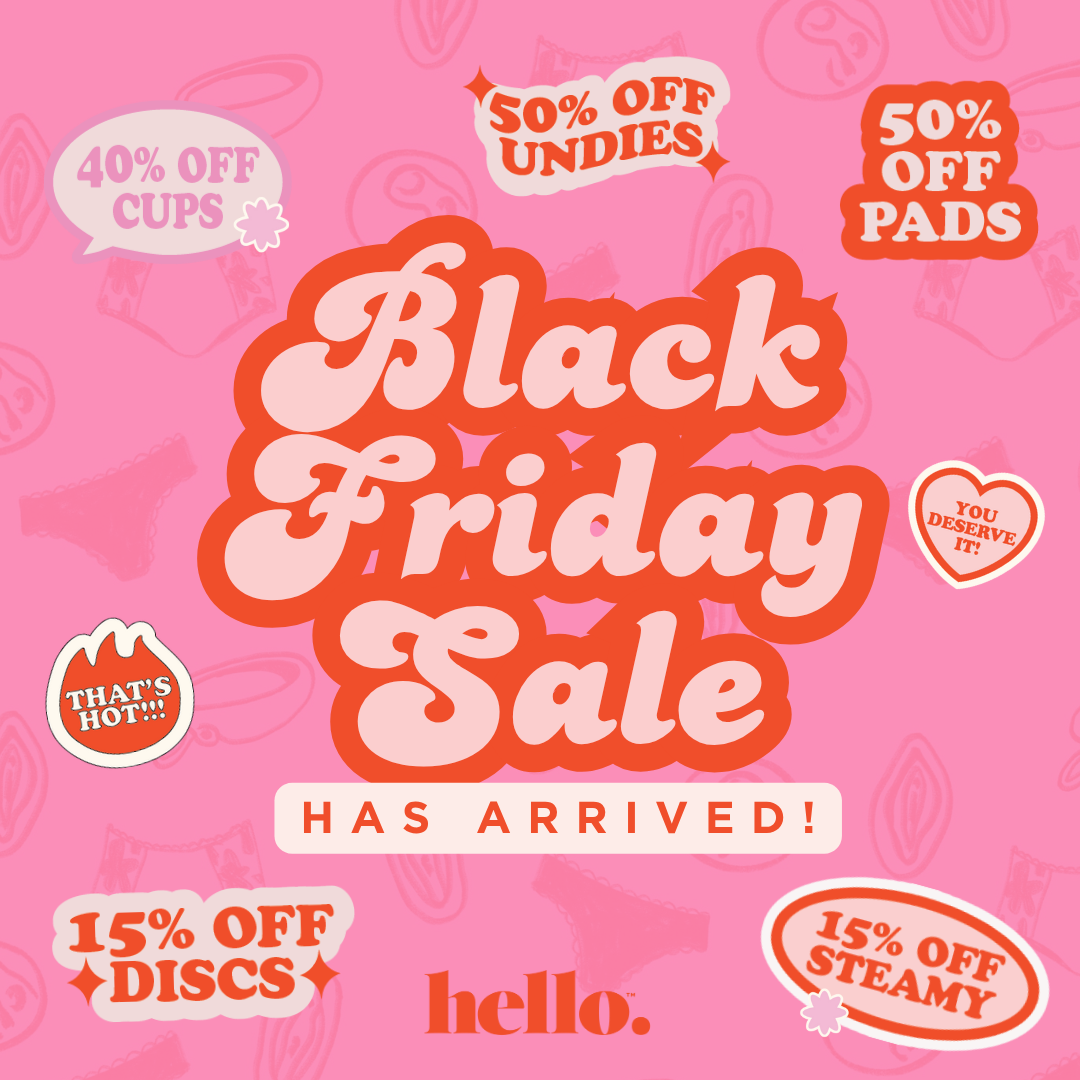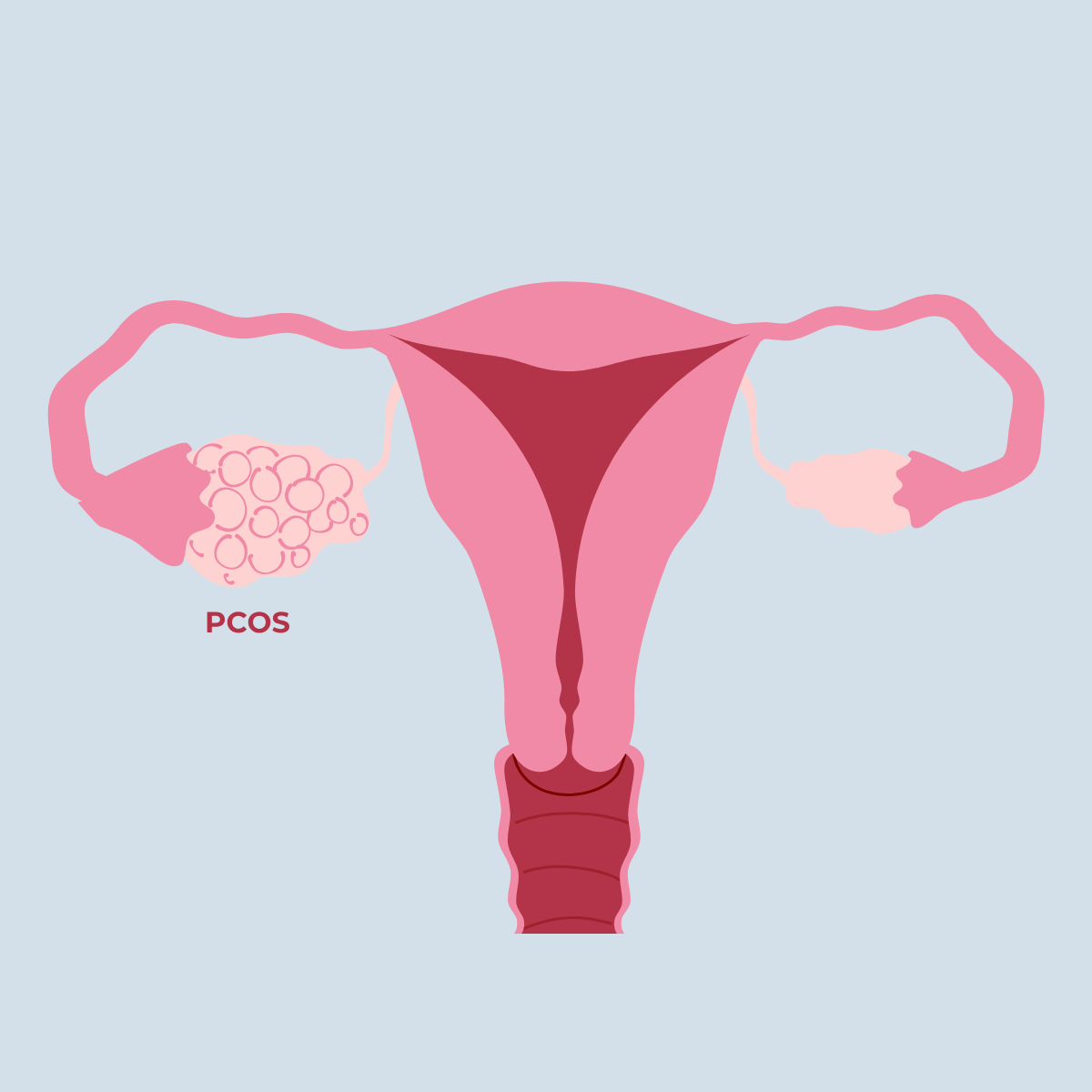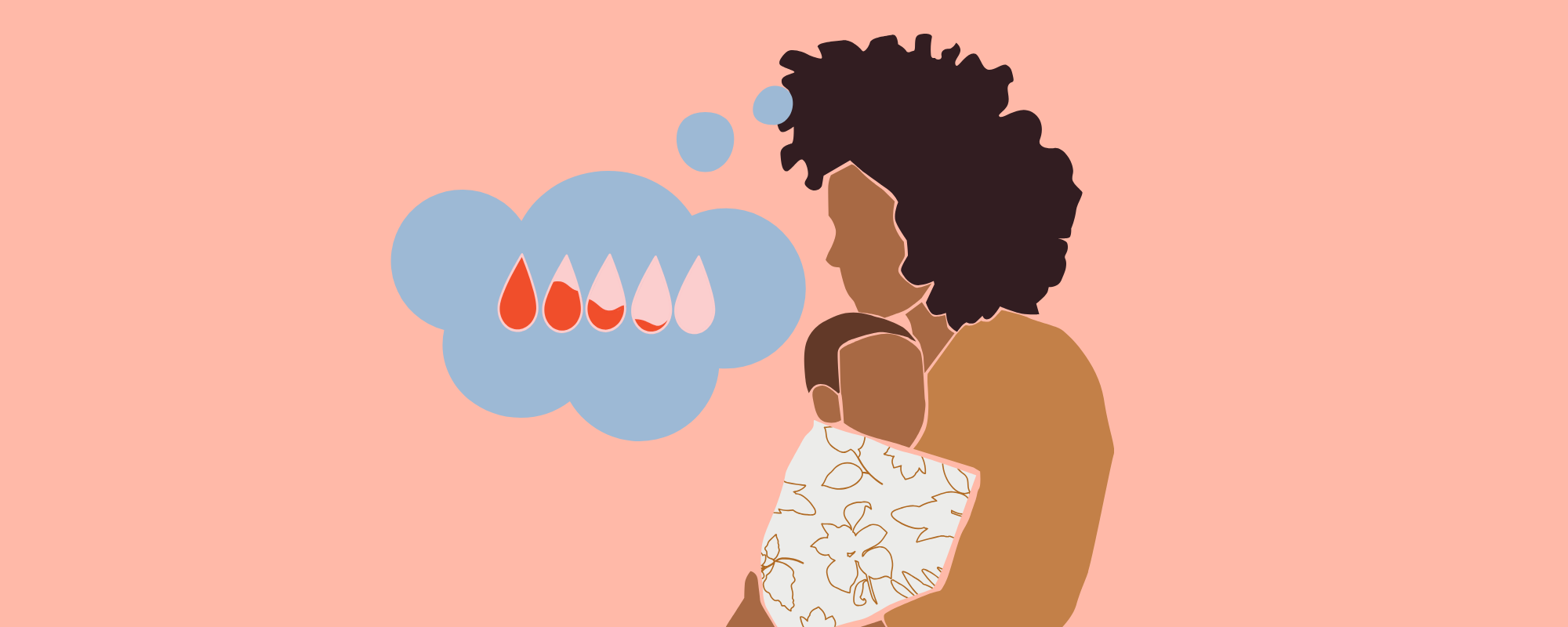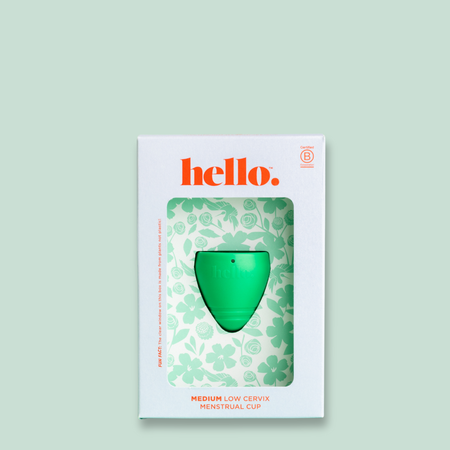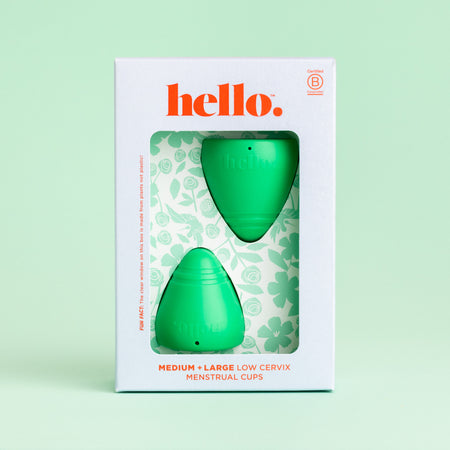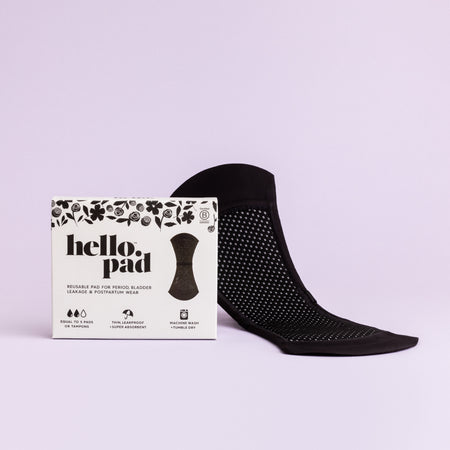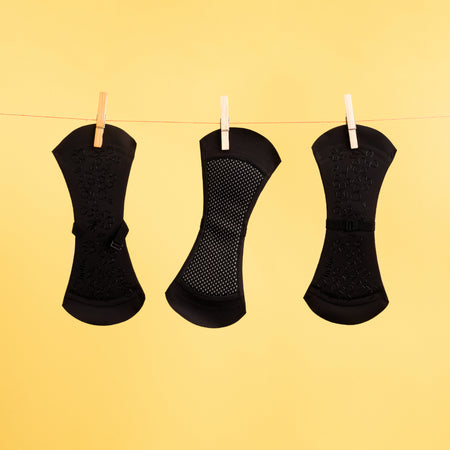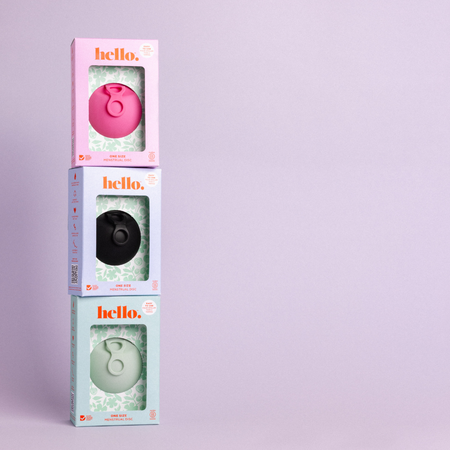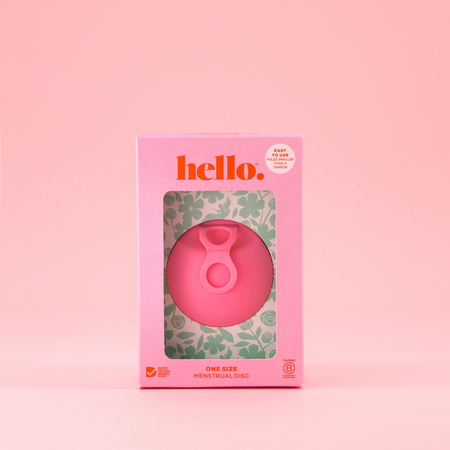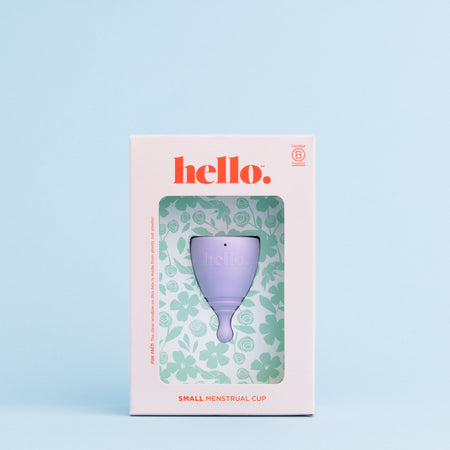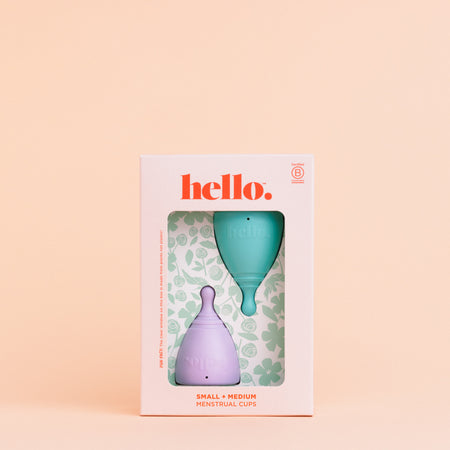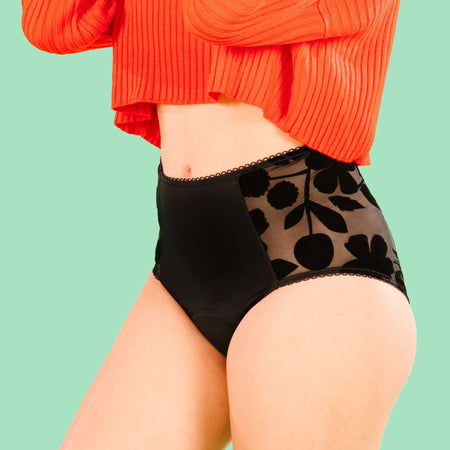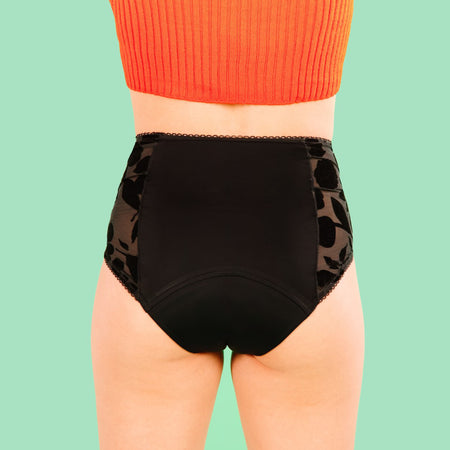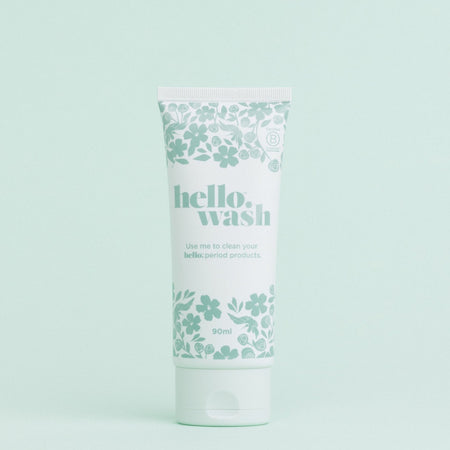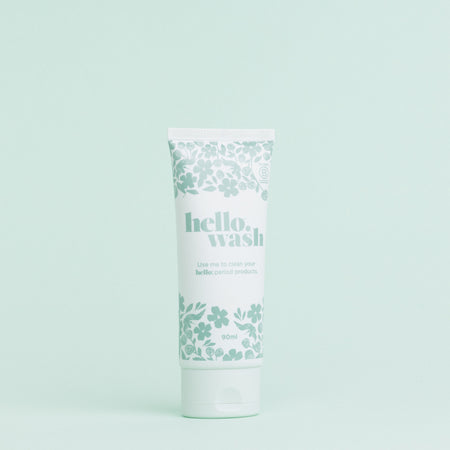Lately, there's been a buzz about chemicals in period products, and it's not the good kind. Recent studies have shown that some menstrual products contain chemicals, sparking concerns among those of us who want to be sure we’re putting safe products in the most sensitive parts of our bodies. In this post, we'll explore these chemicals, the potential risks they pose, and how you can make safer choices for your period and body.
Common Chemicals Found in Period Products
Let's take a look at some of the common chemicals found in single-use tampons, pads, and other menstrual products. Understanding what’s inside these everyday essentials is the first step to making informed choices.
1. Dioxins
Dioxins are present in many traditional menstrual products. Dioxins are by-products of the bleaching process used to make tampons and pads appear clean and white. Even though manufacturers claim that the levels are low, dioxins have been linked to cancer, hormonal disruptions, and endometriosis (Breast Cancer Prevention Partners, 2023).
=> Maybe you'll be interested in: Titanium Dioxide in Tampons
2. Fragrances
If you’ve picked up a box of scented tampons or pads, you've encountered fragrances. These aren't just any scents; they often contain a cocktail of undisclosed chemicals. While they might sound harmless, fragrances can include allergens, sensitisers, and phthalates, which can wreak havoc on your hormones (Women’s Voices for the Earth, 2023).
3. Adhesives
Pads need to stick, right? That's where adhesives come in. But, these adhesives can contain chemicals that may not be skin-friendly. Long-term exposure can lead to skin irritation or worse, without you even realising it.
4. PFAS
PFAS in menstrual products, also known as "forever chemicals," are popping up in an alarming number of items. This raises the question: do companies put chemicals in period products knowingly, or is it just a by-product of manufacturing? These chemicals are used to make products water-resistant, but they carry risks such as decreased fertility and increased cancer risk (Healthline, 2023). It's not exactly the kind of stuff you want in your period products so do you research and ask companies whether they independently lab test their period underwear for harmful PFAS.
5. Other Chemicals
There are other chemicals, too, like pesticide residues from non-organic cotton. It's wild to think that something as natural as cotton could harbour harmful substances, but here we are (Safe Cosmetics, 2023).
A controversial topic is the alleged presence of metal in tampons. While there is no evidence supporting the deliberate inclusion of metal in tampon products, concerns remain about whether do tampons have metal in them inadvertently due to manufacturing processes.
Health Risks Associated with These Chemicals
Now that we've looked at some of the chemicals themselves let's explore the potential health risks they pose.
1. Allergic Reactions and Skin Irritations
We've all experienced skin irritations at some point, and menstrual products shouldn't be the culprit. Unfortunately, fragrances and adhesives can cause allergic reactions, leaving you with discomfort when you least expect it (Women’s Voices for the Earth, 2023).
2. Hormonal Disruption
Hormones are delicate, and products with certain chemicals can throw them off balance. Phthalates, commonly found in fragrances, are known endocrine disruptors, meaning they can interfere with hormone function and lead to developmental problems (Healthline, 2023).
3. Reproductive Health Issues
Some harmful chemicals in period products have raised concerns about their potential effects on reproductive health. Research is ongoing to understand the impact of substances like harmful dioxins, which some studies suggest may have a link with health issues such as endometriosis. However, regulatory bodies monitor and limit these chemicals to ensure the safety of consumer products.
4. Cancer Risks
Let's not sugarcoat it—some chemicals in period products have been linked to cancer. Dioxins and harmful PFAS are significant concerns here, with research pointing to potential carcinogenic effects (Time, 2023).
Chemicals Regulatory Standards
You might be wondering, "Aren't there regulations to protect us?" Well, the answer is a bit complicated.
In Australia, tampons are considered therapeutic products and must comply with specific standards (Therapeutic Goods Administration, 2023). However, there's still a gap in comprehensive regulations, particularly concerning harmful chemical disclosures in period products. Many believe there should be stricter standards to ensure safety and transparency for consumers.
In New Zealand, menstrual products are regulated under the Fair Trading Act and the Consumer Guarantees Act, which focus on ensuring that products are safe and accurately represented to consumers. Unlike some other regions, New Zealand has not categorised these products as medical devices, leaving a regulatory gap similar to that in Australia.
On the international stage, the European Union has been more proactive, often setting stringent guidelines for chemicals in consumer products. The EU's REACH regulation is a comprehensive policy aimed at protecting human health and the environment from the risks that chemicals could pose.
Meanwhile, in the United States, the FDA provides oversight, but this typically focuses on the safety of the manufacturing process rather than comprehensive disclosure of harmful chemical components. There is a growing call worldwide for greater transparency and stricter regulations to better safeguard consumer health, pushing for harmonised international standards.
Safe Alternatives to Conventional Period Products
Thankfully, it's not all doom and gloom. There are safer alternatives available that can help you avoid unwanted chemicals during your period.
1. Menstrual Cups/Discs
Menstrual cups and menstrual discs are gaining popularity for their eco-friendly nature and toxin-free promise. Made from body-safe materials, they offer a safe and comfortable alternative. Hello Period's menstrual cups and discs are known for their innovative design, superior leak protection, and easy-to-use features. They have been voted the #1 Menstrual Cup by Cosmopolitan and are the top-rated Menstrual Disc on Google.
2. Period Undies
Period underwear offers comfort and convenience without the need for disposable products, providing a sustainable and cost-effective solution. They’re designed to be absorbent without harmful chemicals, ensuring safety and peace of mind. Hello Period's selection includes cute high-waisted and bikini styles known for their soft, breathable fabrics and superior leak-proof technology. The are independently lab tested and are free of harmful PFAS.
3. Reusable Pad
Another option is reusable pads, like the Hello Pad. Featuring patented leakproof technology, the Hello Pad offers exceptional reliability, allowing you to wear it comfortably all day. It holds as much as FIVE regular single-use tampons or pads! Made from materials free of harmful pesticides and bleach, Hello Pads lets you avoid chemicals found in traditional period products while supporting eco-friendliness.
A Word from Hello Period!
Navigating the world of period products can be overwhelming, but knowledge is power. By understanding the bad chemicals in period products and their potential risks, you can make more informed choices. Here at Hello Period, we're dedicated to providing healthier, safer options for your menstrual health.
If you're ready to make the switch to safer period products, explore our range at Hello Period.
Disclaimer: Please be aware that we are not healthcare professionals. Our content is for informational purposes only and should not be considered a substitute for professional medical advice, diagnosis, or treatment.







